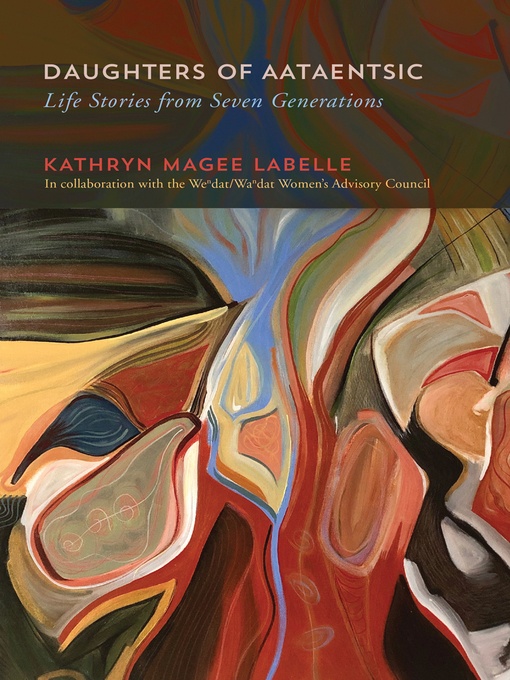Daughters of Aataentsic highlights and connects the unique lives of seven Weⁿdat/Waⁿdat women whose legacies are still felt today. Spanning the continent and the colonial borders of New France, British North America, Canada, and the United States, this book shows how Wendat people and place came together in Ontario, Quebec, Michigan, Ohio, Kansas, and Oklahoma, and how generations of activism became intimately tied with notions of family, community, motherwork, and legacy from the seventeenth to the twenty-first century. The lives of the seven women tell a story of individual and community triumph despite difficulties and great loss.
Kathryn Magee Labelle aims to decolonize the historical discipline by researching with Indigenous people rather than researching on them. It is a collaborative effort, guided by an advisory council of eight Weⁿdat/Waⁿdat women, reflecting the needs and desires of community members. Daughters of Aataentsic challenges colonial interpretations by demonstrating the centrality of women, past and present, to Weⁿdat/Waⁿdat culture and history. Labelle draws from institutional archives and published works, as well as from oral histories and private collections.
Breaking new ground in both historical narratives and community-guided research in North America, Daughters of Aataentsic offers an alternative narrative by considering the ways in which individual Weⁿdat/Waⁿdat women resisted colonialism, preserved their culture, and acted as matriarchs.
- All Fiction
- Available Now
- Romance
- Mystery & Thrillers
- Literature
- Historical Fiction
- Hard SciFi
- Science Fiction & Fantasy
- See all
- All Nonfiction
- Available Now
- Biography
- History
- Cooking & Food
- Business
- Self-Improvement
- Health & Fitness
- Popular Science
- See all

